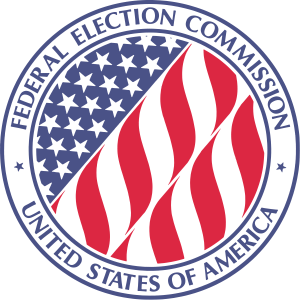By Robert Romano –
On March 26th, 2010, SpeechNow.org won a federal case against the Federal Election Commission (FEC), which had barred the organization from raising unlimited amounts of money from its donors. The ruling by the D.C. District Court applied the reasoning from the recent Citizens United case, which previously lifted restrictions on expenditures by independent organizations.
Independent organizations by definition act without any coordination with candidates or candidates’ campaigns, and do not necessarily make donations to campaigns. Instead, they raise money on their own to advocate for and against the election of candidates via expenditures.
However, the law restricted organizations from taking any more than $5,000 from any individual, and in the case involved, according to the ruling, three individuals who wanted to donate more than that.
From the case’s background: “All five of the individual plaintiffs – [David] Keating, [Edward] Crane, Fred Young, Brad Russo, and Scott Burkhardt – are prepared to donate to SpeechNow. Keating proposes to donate $5500. Crane proposes to donate $6000. Young, who is otherwise unaffiliated with SpeechNow, proposes to donate $110,000. Russo and Burkhardt want to make donations of $100 each. In addition, as of August 2008, seventy-five other individuals had indicated on SpeechNow’s website that they were interested in making donations.”
However, because of the law, SpeechNow.org never collected any of the intended donations, and thus never was able to engage in the political activities it had planned for 2008. According to the ruling, “As for expenditures, SpeechNow planned ads for the 2008 election cycle against two incumbent candidates for federal office who, in the opinion of SpeechNow, did not sufficiently support First Amendment rights. These ads would have cost around $12,000 to produce. Keating intended to place the ads so that the target audience would view the ads at least ten times, which would have cost around $400,000.” But that never happened.
So, the Court ruled that if the government has no anti-corruption interest in limiting expenditures made by independent organizations, as in the Citizens United decision, then it has no such interest in limiting donations to those same independent organizations.
That was a pretty straightforward ruling, but with the Federal Election Commission, nothing is ever so simple. It appears that they never intended to honor the ruling.
As SpeechNow.org noted yesterday in a press release, after the initial ruling, “the FEC did not agree to refrain from enforcing the laws against prospective donors to SpeechNow.org who were not plaintiffs in the case.”
In other words, the danger existed that the FEC absurdly intended to apply the March 26th ruling very narrowly, only allowing unlimited donations from those five petitioners to SpeechNow.org.
That would have created an untenable situation wherein prospective individuals wishing to donate as much as they want to independent organizations would have to individually sue in court, incurring the legal fees necessary to win the case. All that to obtain a right that according to the Court is supposed to be protected by the First Amendment.
So, SpeechNow.org returned to Court, arguing for an injunction that would allow the organization to solicit donations from prospective contributors free of the prior, unconstitutional restrictions — including those who were not plaintiffs in the original case.
Finally, on June 1st, SpeechNow.org won the injunction, enforcing the March 26th ruling.
“By enjoining the FEC from enforcing limits against prospective donors to SpeechNow.org, the court has ensured that everyone is free to associate and speak about politics,” said Institute for Justice (IJ) Senior Attorney Steve Simpson, who along with the Center for Competitive Politics represented SpeechNow.org in court.
“No one should have to choose between their First Amendment right to speak and their First Amendment right to associate,” Simpson added. That’s right. And yet that is exactly what the FEC and proponents of campaign speech restrictions are attempting to force everyone to do. The SpeechNow.org v. FEC decision is a victory for free speech.
But the war is never won. Remarkably, the FEC may still need to be enjoined from enforcing limits against prospective donors to independent organizations besides SpeechNow.org — just so it gets the message. In the end, it is as John Philpot Curran warned: “The condition upon which God hath given liberty to man is eternal vigilance.”
Robert Romano is the Senior Editor of ALG News Bureau.







